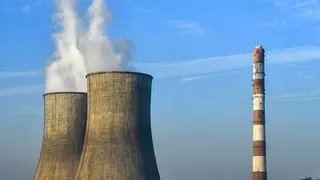The United Planters Association of South India (Upasi) has asked the Centre not to heed tyre manufacturers’ demand for a reduction in the import duty on natural rubber.
Any such move will be detrimental to the interest of 1.2 million growers dependent on this agro industry, the planters’ body said.
Vinod Sivappa, Upasi president, said that demand to reduce import duty on rubber has nothing to do with the production deficit but was due to an increase in international rubber prices. The domestic price is currently ruling at ₹160/ kg while, the international price is ₹175.18/kg. The call for reduction in import duty is nothing but a ploy to further depress domestic prices, he said.
According to Sivappa, there is no reason whatsoever to reduce import duty, especially given the surge in imports of rubber during the last few years, with each year reporting new highs.
He cited that imports in 2008-09 stood at 77,762 tonnes, rising manifold to reach 4,58,374 tonnes in 2015-16. During the current year, up to December 2016, imports were again higher by 1,334 tonnes.
The surge in imports had been a major factor for the crisis faced by the growers, he added.
International prices are invariably more volatile as evident from the recent increase in prices, which makes the domestic rubber producing sector all the more relevant, he said.
The reason cited by the consuming industry for relaxation of import duty was on the background of the Rubber Board estimates on key variables such as production at 7.2 lakh tonnes vis-à-vis consumption at 10.6 lakh tonnes for FY 2018.
Rubber production, compared to previous years, has reported a clear increase and any attempt to disturb the import duty structure will be counter-productive in augmenting domestic production, he said.
A case in point is the drastic decline in the production level from 9.13 lakh tonnes in 2012-13 to 5.62 lakh tonnes in 2015-16.
From these levels, in the current year (2016-17), production is anticipated to rebound to the level of 6.5 lakh tonnes and 7.2 lakh tonnes in 2017-18.
“It is indeed a welcome development and it is anticipated that production will improve and meet the gap between consumption and production,” said Sivappa.







Comments
Comments have to be in English, and in full sentences. They cannot be abusive or personal. Please abide by our community guidelines for posting your comments.
We have migrated to a new commenting platform. If you are already a registered user of TheHindu Businessline and logged in, you may continue to engage with our articles. If you do not have an account please register and login to post comments. Users can access their older comments by logging into their accounts on Vuukle.